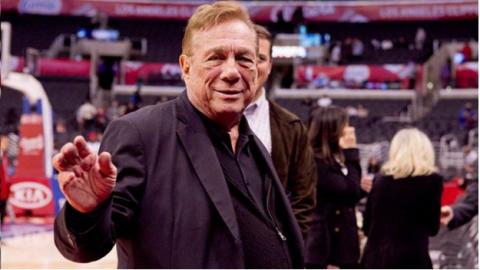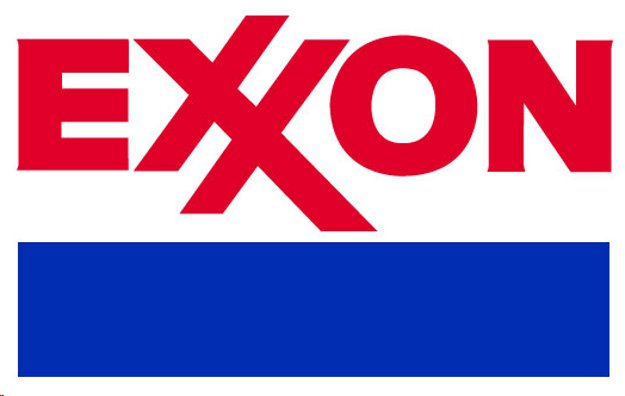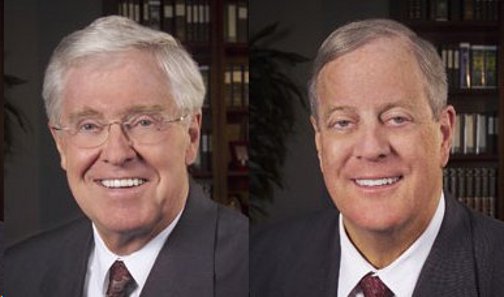How Billionaires and Businesses Buy Forgiveness for Bad Behavior

Maybe money can’t buy love, as the saying goes, but if recent trends in the world of philanthropy are any indication, it can, in many cases, buy absolution from a host of sins. How so?
When oil companies such as BP or Exxon create environmental havoc, their go-to response is usually to donate money to pliant conservation organizations. They then take ads out in national newspapers such as the New York Times, The Wall Street Journal, or USA Today touting their donations.
Goldman Sachs is not only the master of Wall Street, it is the master of buying redemption from the host of sins it committed during the financial crisis of the late 2000s. The bank was accused of making billions of dollars while ordinary Americans were losing their homes and the federal government was footing the bill to bail out the financial services industry (including indirectly Goldman).
Goldman’s shenanigans weren’t lost on Main Street (the bank and AIG became the poster boys during the financial crisis of bad corporate behavior). So to turn the tide of public opinion, Goldman Sachs did what all rich corporations and individuals do when they get in trouble: The bank began giving money away hand-over-fist.
Since 2008, Goldman has given nearly $2 billion away to charity, making it one of the country’s leading corporate philanthropists. The bank’s donations represent more than 3.5 percent of its pretax income, far above the corporate average of 1 percent.
What does a savvy corporation do to create good publicity in the face of paying the vast majority of its workers minimum wage while advising them to get public assistance to make ends meet? Support a cause that is bound to tug at the heart of the most hardened Big Mac eater.
But don’t let the public dig too deep into the details of how much you actually give to Ronald McDonald House. Just make sure those donation boxes continue to be prominently placed at each and every McDonalds across the country.
It turns out that McDonalds contributes the paltry sum of between $5 million to $10 million yearly (including in-kind contributions) to Ronald McDonald House, according to a report by Corporate Accountability International. That represents less than 20 percent of the money raised by Ronald McDonald House Charities. The nickels, dimes, and quarters of customer change that are donated added up to more than $50 million in 2013.
Billionaires are equally as good as large corporations at buying redemption (they would probably call it just being good citizens) for what the public considers questionable behavior, but they would consider normal business practices.
Perhaps nobody was as skilled at the art of the buying off the charities (some would call it bribing) of the very people harmed by his business practices than the now all-too-famous Donald Sterling.
And it didn’t’ take much money for Sterling, the still, but soon-to-be one time, owner of the Los Angeles Clippers, racist rants, and racist business practices, to purchase the halo effect of a NAACP Lifetime Achievement Award: A mere $5 thousand, according to LAweekly.com.

Sterling gave money to other African-American and Latino groups, including The United Negro College Fund, Para Los Ninos, The Black Business Association in L.A., The Union Rescue Mission, and Nuevo Amancer Latino Children’s Services.
Sterling would no doubt have been able to continue to play his cynical game of treating his African-American and Hispanic tenants poorly while giving money to organizations that assist those groups if not for the fact that his one-time mistress recorded one of his racist screeds.
All told, Sterling’s taking from one hand (a lot as it turned out), while giving to the other (very little as it turned out) to buy good will was a pretty deal while it lasted. Over the years as his residential rental business grew to make him a billionaire, he gave a pittance to minority groups, only $430,000 since 2009, according to BuzzFeed, for example.
Sterling may be the most infamous, but is hardly the only billionaire to use targeted philanthropy to burnish his imagine.
The Koch Foundation’s (the philanthropic arm of the Koch Brothers) recent grant of $25 million to the United Negro College Fund (UNCF) raised eyebrows not for the donation’s amount, but for the fact that it came from the Koch Brothers.

These are the very Koch Brothers who have supported voter suppression efforts, fund candidates advocating policies harmful to minority communities, push for cuts to government programs that are important to minority groups, and advocate economic policies that would make the poor poorer, the rich richer, and squeeze the middle even further.
The Koch Brothers, who are worth more than $100 billion, got exactly what they were hoping for with the gift: Great media despite initial skepticism about their motives.
The NAACP and the UNCF are hardly the only philanthropic organizations to sell their souls for dough Cash for awards has become a mainstay of charitable fundraising.
Scenario A plays out hundreds if not thousands of times a year. Company A gives Charity B $1 million. Charity B honors Company A’s CEO, no thought given to the CEO’s outrageous pay package, the company’s dependence on suppliers that pay workers $10 a day, or a former employee’s recent suit for age discrimination.
Scenario B plays out less often, but is equally as shady. Billionaire A, hassled by the business press about questionable business practices, donates $100 million to super feel good media savvy Charity B. Charity B bestows Billionaire A with a “Good Citizen” award at its widely-covered-by-the-lifestyle-media annual fundraiser attended by Hollywood, Washington, Wall Street, and Silicon Valley bigwigs.
What storyline—besieged billionaire businessman or glamorous generous billionaire businessman--do you think penetrates the public’s consciousness?
Score one for a cynical yet savvy billionaire.
Author Bio:
Mark Goebel is a contributing writer at Highbrow Magazine.































































































































































































































































































































